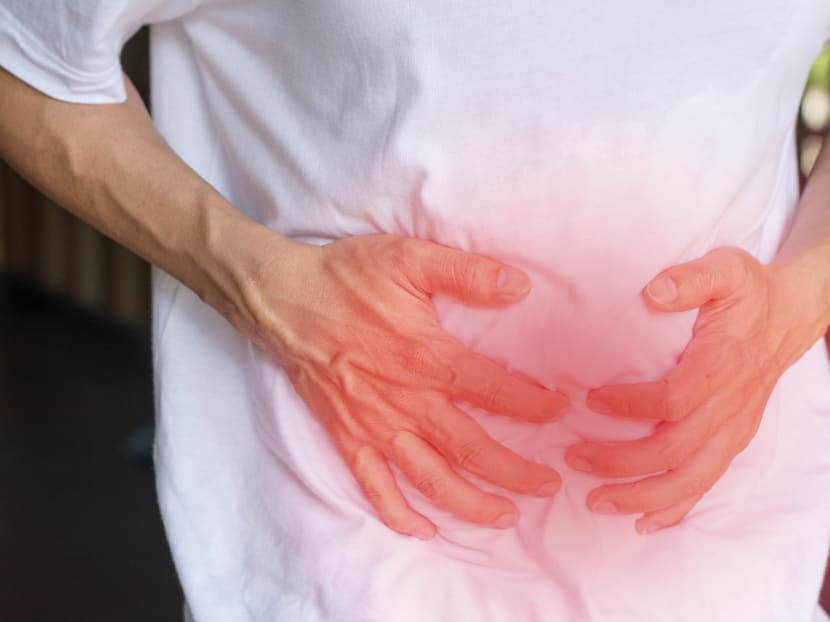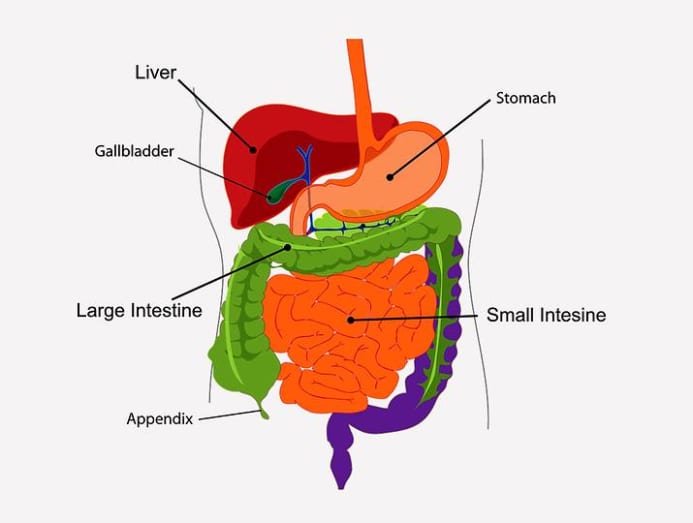The truth about appendicitis – is there a way to prevent it and can it happen twice?
Remember actor Daniel Wu’s recent ordeal? Is that normal? Can you avoid having to undergo surgery? CNA Lifestyle answers your burning questions.

(Photo: iStock/Pornpak Khunatorn)
When it comes to abdominal discomfort, appendicitis isn't on top of most people's minds. Many would be more concerned about food poisoning instead.
Which was exactly what Hong Kong-American actor Daniel Wu thought when he developed a stomachache. But it turned out to be appendicitis and, get this, he had the painful condition not once, but twice.
READ: Daniel Wu recovering after surgery for second appendicitis attack in less than two years
The Tomb Raider actor had gone to the hospital last March for what he thought was a bad but regular bout of food poisoning. Long story short: Sepsis had already set in, the doctors could not remove his appendix, and he was sent home after 10 days of antibiotics and fasting – and about 8kg lighter.
"I was told if it didn't cause me any problems I could just leave it,” the 46-year-old actor wrote on Instagram. Unfortunately, Wu found himself back in the hospital on Sept 17 for the same problem. This time, the doctors removed the appendix once and for all.
WHAT EXACTLY IS APPENDICITIS?
It begins in the appendix, which is a 4cm-to-10cm-long, finger-like structure sticking out from the first part of the large intestine or colon, according to the Singhealth website, and it is found in the right lower part of your abdomen.
The appendix is not without its function. Its lining contains cells that help fight infection but it can be removed without “detrimental effect”, noted Singhealth.

In many cases, the exact cause of appendicitis is unknown and likely a "random event", said Dr Ng Chee Yung, a senior consultant surgeon in colorectal and general surgery with Mount Elizabeth Novena Hospital.
"There is no known specific activity, food, drink or health condition that predisposes one to appendicitis."
He continued: "Some cases appear to be linked to an obstruction within the appendix itself. This can be due to, most commonly, a build-up of hardened stool and, less commonly, tumours and other causes like intestinal worms".
READ: Why that heartburn might be stomach cancer – and how salty food increases the risk
Appendicitis is estimated to affect less than 10 per cent of the general population. For instance, a Korean study showed that the lifetime risk for men was 8.6 per cent and women, 6.7 per cent.
"We do not have specific statistics for Singapore," said Dr Ng.
HOW DO YOU TELL IT’S APPENDICITIS?
Most cases of appendicitis start off as a vague tummy ache, according to Dr Ng.
"It usually rapidly worsens and becomes more obviously felt in the right lower part of the abdomen. Patients may develop a fever and also feel nauseous.
If untreated, the intensity of the pain usually worsens to become intolerable and the patient invariably will seek medical help."
Surgery is the mainstay of treatment for appendicitis, said Dr Ng, who added that the procedure is usually low risk, straightforward and has rapid recovery.
"There is no long-term impact to one’s gastrointestinal function after the removal of the appendix. The patient’s bowel function will not be affected," he said.
CAN A DOUBLE APPENDICITIS HAPPEN TO YOU?
If you've wondered whether Wu’s double ordeal could happen to you, it's quite unlikely, said Dr Ng.
"According to reports, Wu did not undergo appendicectomy (the surgical removal of the appendix) in his first bout of appendicitis and was treated with antibiotics alone instead. Therefore, he was at risk of developing a second bout of appendicitis," he said.
"There is a 14 per cent risk of developing recurrent appendicitis within one year after receiving only antibiotic therapy for appendicitis, according to studies."
There is no known specific activity, food, drink or health condition that predisposes one to appendicitis.
Dr Ng added that the majority of patients would not have a second bout of appendicitis as most of them would have undergone appendicectomy in the first place.
"More recent studies have shown that a course of strong antibiotics (without appendicectomy) can successfully treat most (70 per cent to 80 per cent) of cases.
However, those patients do run the risk of recurrent appendicitis like Wu’s case," said Dr Ng.
CAN YOU AVOID SURGERY FOR APPENDICITIS?
Treating appendicitis with just antibiotics alone was a method trialled and documented in an American study published in the New England Journal Of Medicine in October.
In the study, 776 patients were randomly assigned to receive antibiotics and 776 patients to undergo appendectomy.
Patients in the antibiotics group received a 10-day course of antibiotics. Of the 1,552 patients, 172 were enrolled at Henry Ford Hospital.
The results? Seven in 10 patients, who received antibiotics, avoided surgery within the first 90 days following treatment, while three in 10 eventually needed surgery within the same time frame.
Patients treated with antibiotics missed less time from work or school but reported more visits to the A&E department and days spent in the hospital overall than those who had surgery.
Clearly, the antibiotics-only method has its pros and cons, and it's not a one-size-fits-all approach, admitted the study's co-investigator Dr Jeffrey Johnson, who is the medical director of trauma at Henry Ford Hospital.
"Patients ought to evaluate the benefits and risks of taking antibiotics or opting for surgery, and make an informed decision on what is important to them."





